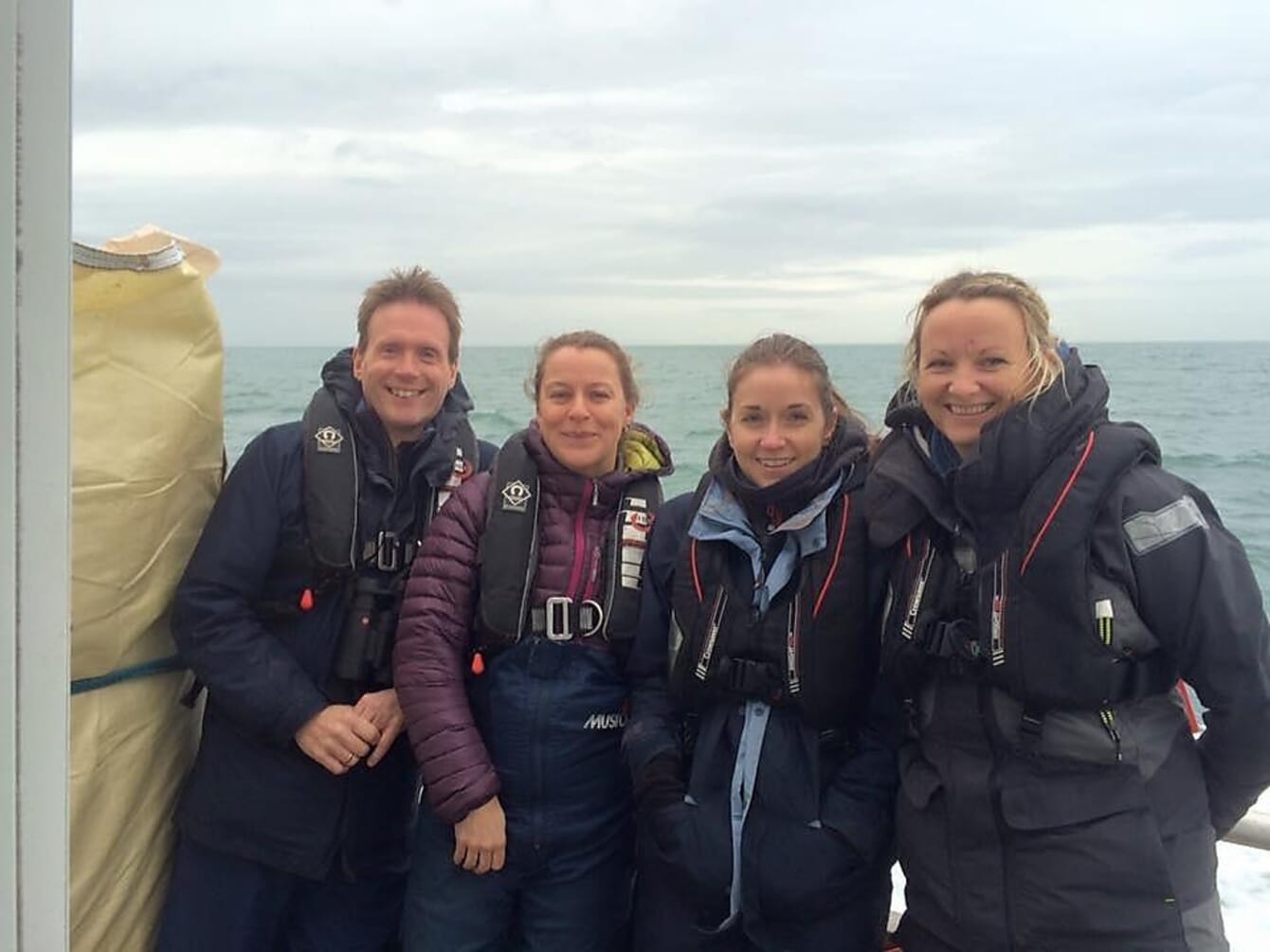
Professor Martin Attrill, Dr Sian Rees, Daniel Bridger and Dr Emma Sheehan during survey work in Lyme Bay © University of Plymouth
The newly published research, by Plymouth University students, is among the first to explore the environmental impact of offshore mussel farms. It is focused on the impact of Offshore Shellfish, which operates the largest such farm in Europe, in Lyme Bay – off the south coast of England.
Since the farm deployed its first ropes in 2013, scientists have used towed and static baited underwater cameras for regular monitoring surveys, during which they tested the effects of the farm’s trial installations on the seabed habitat, and the associated species living on it.
They found that in addition to growing on the ropes, mussel shells were first observed on the seabed under the lines after just six months. Larger clumps appeared within the first 18 months after deployment.
Both the size of mussel clumps and the percentage cover of shells under the farm increased over time and this in turn led to increases in the abundance of other species.
For example, the number of Atlantic horse mackerel (Trachurus trachurus) around the farm increased by more than 300 percent in the space of four years compared to in other areas of Lyme Bay.
There were also marked increases in the number of European lobster (Homarus gammarus) and edible crab (Cancer pagurus), both species that are commercially important in Lyme Bay but were not expected to be found in this area as it is highly degraded from years of bottom towed fishing.
The study is part of the Offshore Mussel Farm Ecology project, which is funded by Offshore Shellfish, although no-one from the company is involved in the project’s design or analysis.
Dr Emma Sheehan, who leads that monitoring project and is the current study’s senior author, said in a press release: “Over the past 15 years, we have consistently shown that a ban on bottom-towed fishing has had positive effects on the environment. This study has given us the first ecological evidence that offshore mussel farming can deliver similar benefits on degraded seabed habitats. That is crucial for the region’s entire seafood industry, and this is the first phase of a long-term, multi-method project that is assessing how the farm impacts the surrounding marine ecosystem. However, it immediately increases the evidence base available to policy makers to help guide the move to aquaculture installations offshore, supporting the national and international Blue Growth agenda.”




